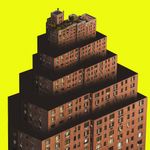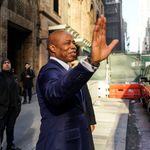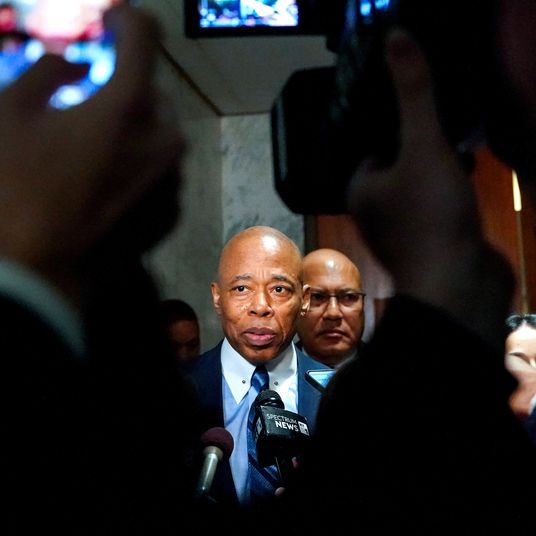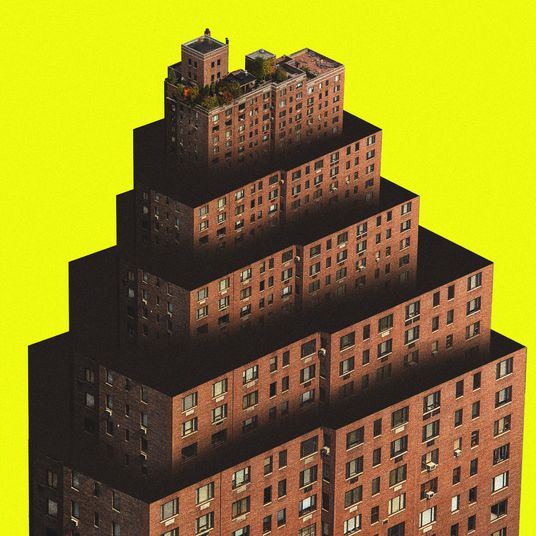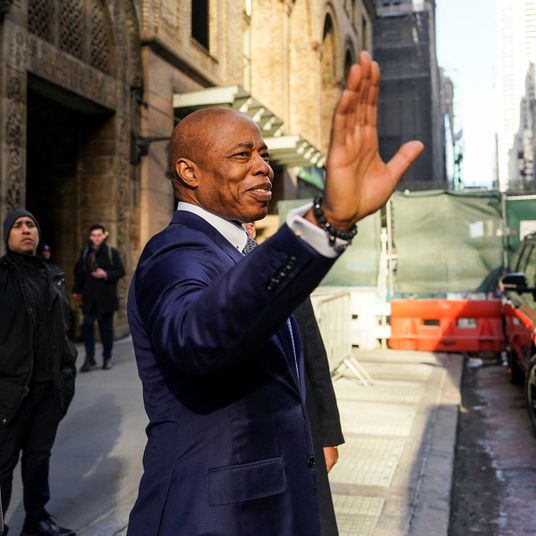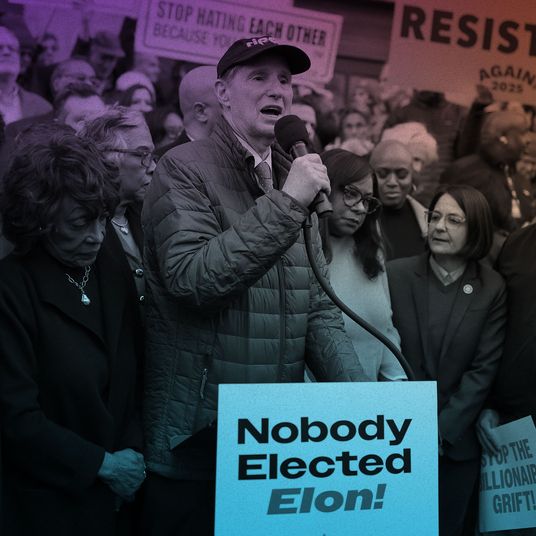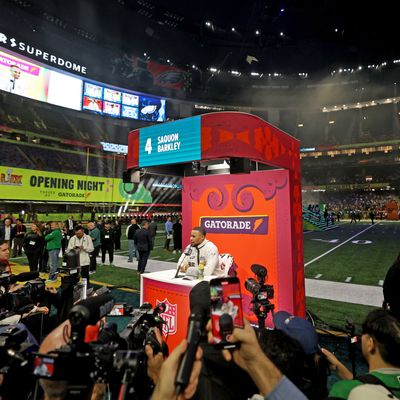
Sneaky Pete’s, a bar in the heart of New Orleans’s French Quarter, claims that when you’re there, it’s “happy hour, every hour.” And, boy, can they prove it. The bar is just a block away from Bourbon Street, where at 3 a.m. on New Year’s Day, a terrorist killed 15 people, including himself, by driving his truck into a crowd of tourists, then leaving the vehicle and firing a .308 AR-10 rival at anyone in sight.
Sneaky Pete’s did not close in the wake of the attack. Like, at all. As illustrated in a terrific Washington Post dispatch, they barely even slowed down. If you were a customer and managed to ignore all the cops, you wouldn’t have had your buzz interrupted one whit:
Despite the trauma, the partying still continued at places like Sneaky Pete’s in the French Quarter. The bar, just a block over from Bourbon Street, was hopping through the morning even as hundreds of local, state and federal law enforcement officers searched the area for evidence. Two patrons spilled onto the sidewalk, drinks in hand. A security guard passed a cigarette to a customer.
A little more than a month later, as New Orleans gets ready to host Super Bowl LIX on Sunday, the party still hasn’t stopped. One of the many great things about staging the Super Bowl here is that a huge cultural event can’t take the whole place over, as it has in the past in cities like Phoenix, Minneapolis, or Tampa. New Orleans goes on about its business as it always does, happily welcoming outsiders (and their money) but otherwise not finding itself particularly disrupted. It feels a bit like a fantasy land: an oasis that just happens to have the Super Bowl going on inside of it. You trek to the Super Bowl — you watch sports, really — to escape from the outside world, to have a little place where you can put all the woes and fears of your daily life aside, to find a nook in which you might hunker and hide. There is no better place than New Orleans to hide, and no better time than right now to be hiding.
But the outside world keeps trying to poke its head here this week, and it’s being rather insistent. Specifically, President Trump is being insistent. He’s not only giving the once-obligatory, now-dependent-on-network-politics pregame interview on the Fox broadcast; he’s also physically showing up for the game, assuring that logistical cavalcade of chaos. Perhaps surprisingly, he will become the first sitting president to ever attend a Super Bowl.
Trump might not be showing here until Sunday, but his shadow is already everywhere. NFL commissioner Roger Goodell made headlines by saying that he plans on continuing the league’s DEI initiatives while also eliminating the “END RACISM” end-zone signing the league put up after the 2020 George Floyd protests; both moves from the multibillion-dollar megacorporation are impossible to separate from the current political climate. Chiefs quarterback Patrick Mahomes and tight end Travis Kelce both caused a stir when they said it would be an “honor” to play in front of Trump, while Eagles quarterback Jalen Hurts briefly became a #resistance 2.0 hero when, after being asked whether or not he would feel pressure playing in front of the president, he responded simply, “No, ma’am.”
The Super Bowl is the most American of unifying traditions. But it’s happening with the country in a nearly unprecedented state of confusion — not even the people in charge seem to know who’s in charge — when nothing is unifying and tradition lasts as long as you can rip the copper wiring out of the walls. What does a country do when it is transmogrifying itself into something more unrecognizable by the second? Well, it does the one thing it has always done together: It watches the Super Bowl and pretends that everything is just fine.
That is to say, it handles it the New Orleans way. The New Year’s terrorist attack was only 38 days ago, yet it seemingly happened several decades in the past, or in a different universe. But it didn’t. It happened in the same area where I had dinner last night and saw countless colleagues, like I do every year at the Super Bowl, which is as close to a national sportswriter convention as anything in the business. It happened in New Orleans, and in America. But so much has shifted since then, so much will continue to shift, that lingering too long on one incident, one more speck of random violence in an ever-elevating spate of them, can’t help but leave you in the past. It all morphs together anyway. The terrorist truck driver, the plane crash, the January 6 pardons, the California fires, the Luka Dončić trade, some techie teenager bro with your Social Security number — it’s just one thing after another.
Combined, they just give more impetus to escape, to turn your mind off, to watch football, to pretend, for three hours, like none of this is happening. It can only work for so long. The illusion can never last. But that’s the promise of the Super Bowl, and of the city that is hosting this year’s game. This is what sports has always done. I’m not sure it’s ever tried to do it harder than it has this week in New Orleans. I suspect it will still not be enough. But New Orleans, and the Super Bowl, will do its best regardless. If you keep the party going and make sure not to look too far in any direction, you can almost convince yourself everything is fine.



